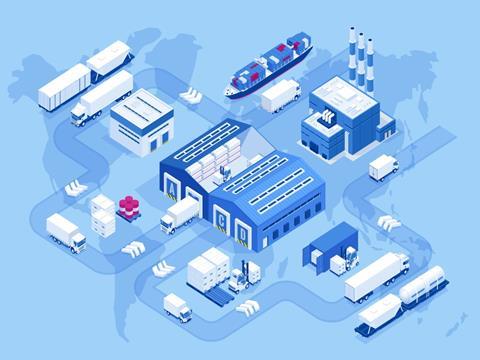
Coca-Cola Europacific Partners (CCEP) has worked alongside specialist food and agricultural bank Rabobank to establish a new competitive system of sustainable goals between its suppliers – a move it hopes will help to achieve its goal of reaching net zero emissions by 2040.
The programme aims to reward suppliers for improving their ESG performance. Claiming to provide “competitive financing”, it encourages participation in a series of sustainability-related KPIs with incremental discounts against the initial funding rate. In theory, this would reduce greenhouse gas emissions across its value chain by 30% by 2030.
CCEP attributes over 90% of its emissions to its supply chain and claims to have already asked its suppliers to take action against the rate of carbon emissions. This includes setting and validating reduction targets with the Science Based Targets Initiative (SBTi) by 2023, committing to using 100% renewable electricity across their operations by 2023, and making their carbon footprint data public. The new programme seeks to add to this by assessing suppliers’ ESG ratings via EcoVadis.
CCEP also intends to partner with Rabobank’s social impact fund, Rabo Foundation, to support one of its farmer programmes in Indonesia. This initiative works to promote sustainable practice in agricultural settings and implement farm inputs to increase yield and improve economic strength in the long term.
“We know how crucial it is that we work together with our suppliers to decarbonise our businesses,” said Ralf Peters, vice president of Procurement at CCEP, “and [we] are committed to providing the support and solutions they need to help them reduce emissions, aligned with our own sustainability goals. Our new supply chain finance programme is another important step that will help us to take collective action – by implementing positive and impactful change and driving continuous sustainability improvements.”
Thomas Levin, managing director Coverage at Rabobank, added, “Coming up with solutions to help businesses achieve their sustainability targets runs to the heart of all of our financing initiatives and Growing a Better World Together strategy.”
“We’re confident that by providing an enhanced sustainability-linked supplier finance programme for CCEP we can create a more responsible and sustainable food and beverages industry that everyone benefits from,” said Zwier Smith, director Value Chain Finance at Rabobank.
HEINEKEN launched a similar “Packaging the Future” programme this summer, setting targets to tackle the climate crisis.
In France, CCEP brands such as Tropico, Sprite and Fanta will be packaged in universal 250ml bottles than can be returned, cleaned, and refilled for reuse at restaurants, cafes and hotels.














No comments yet